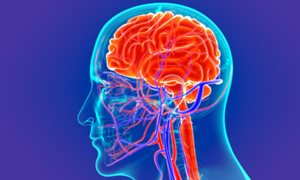 Many patients who suffer from chest pain are not actually having a heart attack, making an emergency hospital visit unnecessary. For such cases, intervention cardiologist Cyril Camaro of Radboud university medical center is investigating if there is a way to quickly and accurately determine at home whether emergency hospital treatment is necessary or a visit to the general practitioner is sufficient. Calculations suggest that this method could potentially save tens of millions of euros on healthcare costs.
Many patients who suffer from chest pain are not actually having a heart attack, making an emergency hospital visit unnecessary. For such cases, intervention cardiologist Cyril Camaro of Radboud university medical center is investigating if there is a way to quickly and accurately determine at home whether emergency hospital treatment is necessary or a visit to the general practitioner is sufficient. Calculations suggest that this method could potentially save tens of millions of euros on healthcare costs.
Effective care
How can it be determined who should go to a hospital for emergency treatment and who should go to the general practitioner for an examination? That question is the basis of the ARTICA study that Camaro will perform in the Nijmegen region in early 2019. The study is funded by an efficacy grant from ZonMw of nearly half a million euros.
“Patients with chest pain should still call for medical help immediately,” says Camaro, “that does not change. Some of these patients will be immediately taken to the hospital by ambulance as usual. These patients will be the control group so we can determine the efficacy of the new approach.”
HEART score
The patients in the other group will be assessed by the ambulance staff on the basis of a questionnaire, which can be summarized with the acronym HEART. The History of the patient is examined, an ECG is made, the patient’s Age is taken into account and a Risk score is determined with factors such as obesity, diabetes and other disorders. If this HEART score is very low, the likelihood of a heart attack is also low. Additionally, the substance troponin (T) is measured in the blood to exclude the possibility of a heart attack. Troponin is a small protein that can be found in high concentrations in the blood in case of heart damage, which happens during a heart attack.
Major cost reduction
If the HEART score is low, the patient can go to the general practitioner for additional examination and testing to determine what is causing the chest pain. Camaro: “Sometimes this pain is caused by stomach or muscle complaints, by stress or because someone has a respiratory infection or pneumonia. Chest pain can have many causes. If we can exclude a heart attack in many patients by using the HEART score, they will not have to go to the hospital for an emergency examination. This gives many patients clarity at an earlier stage, uses ambulances more efficiently, and keeps the scarce beds in the cardiac and general emergency wards available for patients with life-threatening problems. According to our calculations, this can result in substantial savings in healthcare costs. If this ARTICA study demonstrates that this approach works, it can save up to forty million euros per year when implemented nationally.”
-
Want to know more about these subjects? Click on the buttons below for more news.
Related news items

Your heart rate as a thermometer Research Olympic athletes will be followed up during 4Daagse
18 July 2022Body temperature can be determined from heart rate. This is what research by the Radboudumc among Olympic athletes shows. Athletes can use this method during training to eventually perform better in the heat. The technique is now being further investigated among participants in the 4Daagse.
go to page
Want to be sustainable and cool? Choose fans more and aircon less Keep cool and help the environment
12 April 2022 A recent published study led by the University of Sydney, has found using indoor fans more often allows people to reduce their air conditioner use without changing how hot they feel, paving a way for reducing future energy use and greenhouse gas emissions. Coen Bongers, is one of the co-authors. go to page
Exercise program appears to be a good alternative to surgery for chronic chest pain Reduced risk of other conditions, hospitalizations, and mortality
9 December 2021 Patients with chronic chest pain may benefit more from following an exercise program than from surgery in which doctors place a stent. Data from over 18,000 patients show a reduced risk of mortality, hospitalizations and other conditions. go to page
How much should we exercise to live healthier lives? Research into the relationship between exercise, heart disease and mortality
3 December 2021 It has long been known that exercise reduces the risk of many chronic diseases. However, we do not yet know exactly how much exercise is necessary to achieve health benefits. go to page
Thomas van den Heuvel wins Stairway to Impact Award for safer pregnancies using AI Award for safer pregnancies using AI
1 December 2021Radboudumc researcher Thomas van den Heuvel receives the Stairway to Impact Award from Dutch Research Council NWO. He receives this prize for the development of the BabyChecker, a smartphone application that allows midwives to make ultrasounds during pregnancies.
go to page
